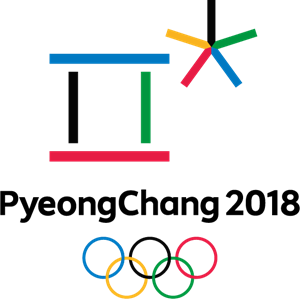Groningen economists predict Pyeongchang medal table: 5 gold medals for the Netherlands
According to a model devised by three economists from the University of Groningen (UG), the Netherlands is set to win 18 medals at the Winter Olympics in Pyeongchang. Fabian ten Kate, Gerard Kuper and Elmer Sterken (also Rector Magnificus) are predicting 5 gold, 6 silver and 7 bronze medals. Ten Kate, Kuper and Sterken published their prediction in the economics journal Economisch Statistische Berichten on 30 January 2018.
The economists also predict that the Netherlands will finish 9th in the medal table. Although this certainly isn’t a repeat of the phenomenal success in Sochi, a top-8 place is definitely within reach. There appears to be little room for manoeuvre in the lower half of the top 10; a gold medal won or lost could have a massive impact on the medal table. There will be fierce competition for the top position; Canada is expected to come out on top, ahead of the United States, Germany and Norway.
Prediction versus results
The model predictions are based on previous Olympic results, the home advantage and World Championship results. Kuper and Sterken have been predicting the medal table for Olympic events since 2002. Economics student Fabian ten Kate joined them in 2014. The differences between the predictions and the results can be very large. To date, the predictions for the Vancouver Games have been the best.

-
2002 Salt Lake City
Prediction: 2 gold, 2 silver, 3 bronze (7), 12th place in the medal table
Result: 3 gold, 5 silver, 0 bronze (8), 9th place in the medal table -
2006 Turin
Prediction: 2 gold, 3 silver, 2 bronze (7), 12th place in the medal table
Result: 3 gold, 2 silver, 4 bronze (9), 10th place in the medal table -
2010 Vancouver
Prediction: 4 gold, 4 silver, 3 bronze (11), 10th place in the medal table
Result: 4 gold, 1 silver, 3 bronze (8), 10th place in the medal table -
2014 Sochi
Prediction: 6 gold, 5 silver, 3 bronze (14), 7th place in the medal table
Result: 8 gold, 7 silver, 9 bronze (24), 5th place in the medal table


Prediction method
In previous predictions made by Ten Kate and Sterken, the emphasis for deciding whether or not medals would be won was on economic and demographic factors. Elmer Sterken: ‘The significance of these factors is waning, so this time, we’re basing our predictions on the results of recent World Championships for the relevant disciplines, supplemented by the home advantage.’
There are two types of predictions. The first type is the journalistic approach, as used by Associated Press and Sports Illustrated for example. These predictions are based on the latest information, such as an athlete’s current world ranking, form in the latest World Championships, injuries, suspensions, etc. The second type of predictions use econometric or statistical models, such as Andreff and Andreff (2014) and Ten Kate, Kuper and Sterken (2014). The statistical models lean more heavily on information from further back, such as the results of previous editions of the Olympics. This takes more account of the strategy of peaking during the Olympic Games rather than during events leading up to them.
The events in Pyeongchang and Gangneung
The Olympic Games in Pyeongchang and Gangneung begin on 9 February 2018. A total of 102 events in 15 disciplines have been organized. The 61 snow events will be held in Pyeongchang, while the 41 ice events will take place in the coastal town of Gangneung. The programme includes four new events: ‘big air’ snowboarding, the curling mixed doubles, mass-start speed skating and the Alpine skiing mixed team event. Eighty-four countries are taking part. Russian athletes without a history of doping are competing under an independent status as ‘Olympic athletes from Russia’.
________________________________________________
> More news from the Faculty of Economics and Business
> FEB experts in the media


| Last modified: | 29 February 2024 10.02 a.m. |
More news
-
14 October 2025
Grant for large multidisciplinary project Add-reAM
Dirk Pieter van Donk has received a grant for a fully financed PhD-position as part of a large multidisciplinary project Add-reAM (Advancing Dutch Circular Economy through Additive Manufacturing: Strategies for Repair and Remanufacturing using AM.
-
30 September 2025
Lieutenant General Elanor Boekholt-O’Sullivan awarded the Aletta Jacobs Prize 2026
The University of Groningen (UG) has awarded the Aletta Jacobs Prize 2026 to Elanor Boekholt-O’Sullivan, the first female lieutenant general in the Dutch armed forces. The prize will be presented on Friday 6 March 2026 by the Rector Magnificus of...
-
26 September 2025
Engaging in physical activity lowers healthcare costs
Researchers at the University of Groningen have conducted research for the municipalities of Rotterdam and Amsterdam into the relationship between sports and exercise and healthcare costs. The results of the study ‘The relationship between sports and...
